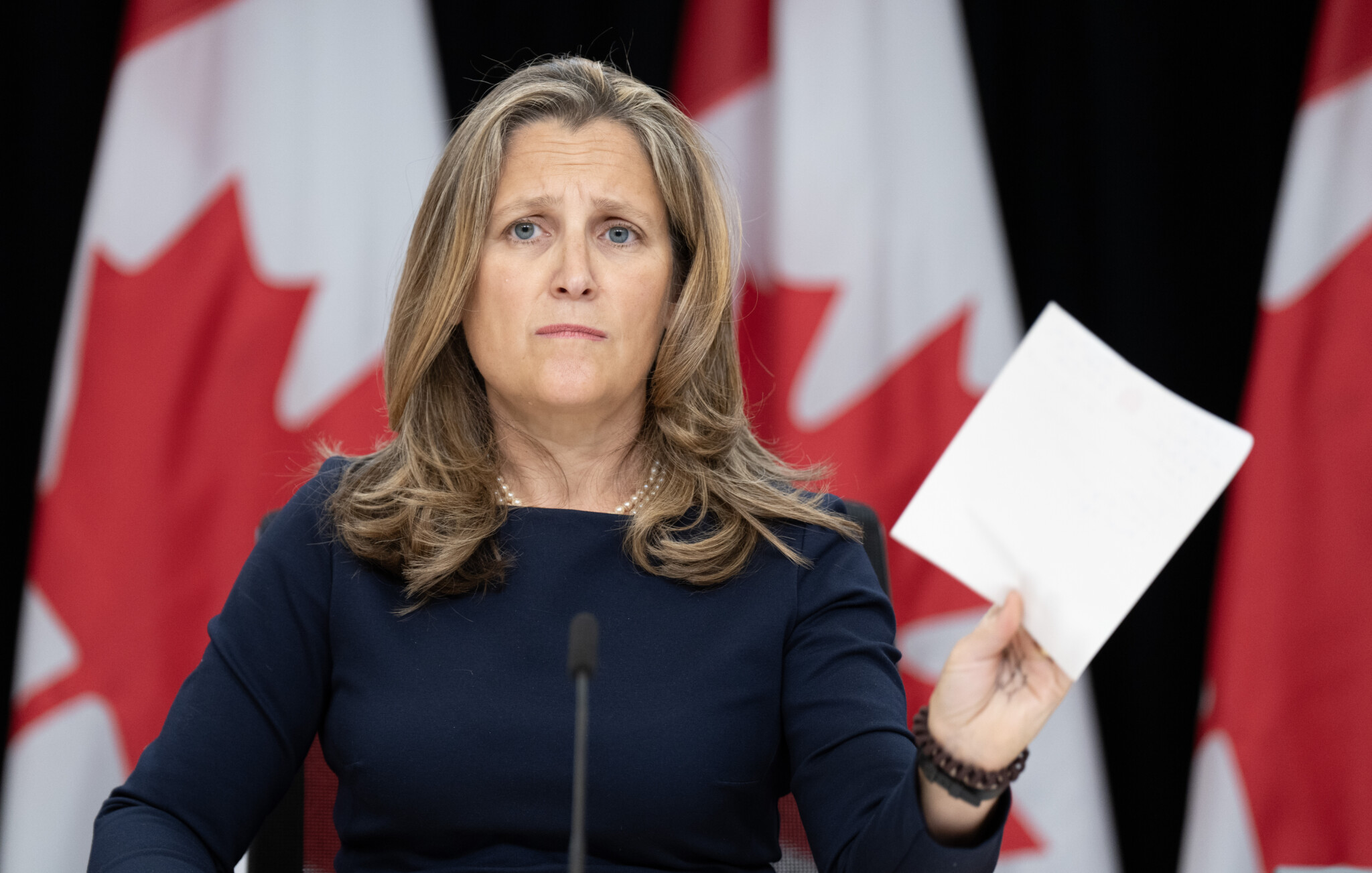Finance Minister Chrystia Freeland announced last week upcoming changes to the Canada Mortgage and Housing Corporation (CMHC) mortgage insurance rules for first-time home buyers and buyers of newly built homes. The changes were presented as good news for anxious young Canadians worried about their ability to purchase homes. I’m mostly skeptical.
Under these proposed changes, CMHC’s mortgage insurance would be available for home purchases up to $1.5 million (as opposed to the previous threshold of $1 million) which means in practice that buyers no longer require a 20-percent downpayment on such homes. In addition, qualifying homebuyers will also be eligible for a 30-year amortization on their mortgage (as opposed to the previous 25-year maximum).
The minister’s announcement has received mixed reviews.
On the one hand, Canada’s homebuilding industry is experiencing record low levels of new housing starts, and this policy could theoretically kickstart demand for new homes. Because of this, Freeland framed this policy as a “supply-side measure.”
That said, the underlying problem facing Canada’s housing market is a problem of affordability, which this policy does nothing to address. In fact, by effectively allowing families to take on more debt (backed by government guarantees), the new policy is a highly-costly way to finance the launch of new housing construction.
This stands in stark contrast to the past position of the Trudeau government which—a few short years ago, with federal deficits growing at incredible rates—famously argued that it was running deficits to save Canadians from taking on personal debt.
Notwithstanding the policy’s flaws, it’s likely to coincide with mostly unrelated developments that may temporarily conceal its downsides. Here’s what will likely happen in the months to come, most of which this government will seek credit for.
First, all indications suggest that the Bank of Canada will continue on its path of reducing interest rates. Expectations are that we’ll likely see two more cuts in 2024, and then probably another 100 basis points worth of cuts throughout 2025.
Second, rates of new home construction will increase from their recent lows. This will be predominantly driven by interest rate cuts, but assisted by these new mortgage policy changes.
Third, home prices will start climbing again quickly as demand reemerges in markets across the country.
The result of this will look a lot like the housing market we recently came out of: one where homes (and condos) are being built, but where prices are skyrocketing. More Canadians will qualify for mortgages on homes that are increasingly unattainable to them, and the federal government will point to that as a sign that their policy is working.
That said, the unfortunate conclusion will be that you can’t solve a supply problem by ratcheting up demand. Until Minister Freeland learns this basic economic lesson, we’re unlikely to see a material improvement in housing prices.
Let’s spend a moment considering what the federal government could have done as an alternative to this announcement.
HST cuts
The primary lever in the hands of the federal government as it relates to housing costs is tax policy. Whether as a permanent reform or a time-limited one, Ottawa could have easily eliminated its portion of HST on all new housing construction. The federal government could have also negotiated with provinces to match them in such a commitment.
From a treasury perspective, tax revenues are already taking a significant hit as home construction slows. Developers, construction companies, land owners, and every other entity directly involved in the real estate industry is paying less income and capital gains taxes because the industry is building fewer homes.
A targeted cut to the HST would quickly see home construction ramp up and income tax revenues return from this industry.
Pressure on provinces to reduce development charges
Every provincial government in the country is facing electoral pressure because of home prices. Any policy changes from Ottawa should have been done in concert with a high-pressure campaign targeting its provincial counterparts, with a focus on development charge reforms.
Taking Doug Ford’s Ontario government as an example, the federal government should not allow his provincial government to benefit electorally from their policies without pressuring him to make some of his own reforms. With a stroke of a pen, Ford could cut development charges in half for five years (putting aside the fact that there’s reason for this to be permanent reform).

A real estate sign is shown in Vaughan, Ont. on Thursday, Sept. 12, 2024. Paige Taylor White/The Canadian Press.
CMHC mortgage insurance changes
To give some small amount of credit to the Trudeau government, there’s a good argument to be made that CMHC mortgage insurance rules were overdue for a change. The $1 million insurance threshold was set some time ago, and we can all agree that the housing market has changed over that time.
Here’s what they could have done:
- Create a regional insurance calculator that varies the threshold depending on the part of the country. A $1 million (or now $1.5 million) home in Moose Jaw, Sask., is not a “starter home.”
- Implement an annual formula to tie the insurance threshold to inflation (but not to home price inflation which is growing at an unsustainable rate).
Other CMHC programs
CMHC’s MLI Select program has been quite successful as a tool to drive purpose-built rental development. The federal government could have mandated CMHC to build a program targeted to home builders not building rentals. A slight increase in available leverage for home builders would partially reduce their dependence on presales, which would allow more projects to get off the ground sooner.
With a looming election, it’s no surprise to see the federal Liberals look for quick and popular band aid solutions. The problem we’ll continue to face as a country is that solving our housing crisis will take time and often unpopular policies.









